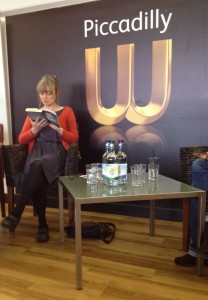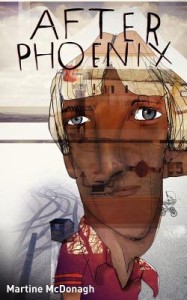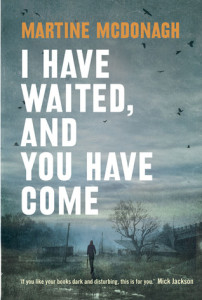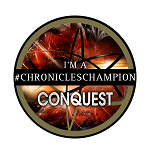I was lucky enough to “meet” Martine on Twitter, she is a lovely lady and I have read both of her wonderful books, After Phoenix and I Have Waited You Have Come. Reviews will follow but she kindly agreed to answer a few questions for me and here is what she had to say.
After Phoenix is a very heartwarming AND heartfelt look at the effects of grief. Was it difficult to write and was much research involved ?
The challenges involved in writing After Phoenix were mostly on the technical side. My first novel, I Have Waited, is written pretty much from a single viewpoint narrative in the present tense and is deliberately almost unrelentingly bleak, a tone which suited the protagonist’s character. After Phoenix is the story of family relationships before and after a personal tragedy, set in England in 1973/74. It seems to me that one of the ways we cope with deep emotional stress such as grief, depression, anger or fear is to alleviate it with humour, and so the biggest challenge in writing this novel was the injection of humour into a fairly horrifying situation.
Writing from three different viewpoints in a rolling, overlapping narrative in the third person past tense also presented a number of challenges, particularly in terms of creating convincing characters with recognisably different voices. But this was necessary I think in order to best show how events are reacted to and remembered differently by each character.
In some ways this novel is an exploration of my own grieving process in that I wrote the first draft of this novel about six months after the death of my father and came back to it some years later after the death of a friend. In terms of research, I had read about the Kubler-Ross theory on the different stages of grieving and while some of it rang true, it felt a little too prescriptive or even formulaic when applied to real life experience. Most of the research for this novel centred around padding out or correcting my own memories of the time. My father worked at the hospital featured in the book and we lived in the staff houses there in a fairly isolated community two miles from the nearest village. Given the associated stigmas, it seems to me that mental health was the one area of the NHS that could be dismantled in the 1980s without too much public outcry. Now that many of these institutions have been dismantled in a move sold to the public as a progressive development in the treatment of mental health issues, it felt important to me to highlight the benefits of the system when it was perhaps at its best.
I also spent many hours in the British Library archives reading issues of Jackie magazine and the national and local press. That was the fun bit.
I Have Waited You Have Come is post apocalyptic but again touches very much on human nature. A bit of a cliché question, but where did the idea come from?
IHW is the result of a lot of different ideas all converging into one story. First I wanted to write about an unstable female character because I feel female monsters are a little bit neglected in literature, particularly now that publishing is so marketing driven and the tendency is towards presenting female characters in a way that a predominantly feminine readership can ‘identify with.’ Nabokov once described the need to identify with fictional characters as puerile. Discuss!
I also wanted to write from the point of view of an unreliable narrator and this seemed to fit quite nicely with the above.
I wanted to write about climate change, a subject which at the time was being handled in a mostly trivial, superficial way in the press, and to make it as frightening a prospect as it seems to be in reality. My interest was not so much in how climate change might affect life in general, although I had to do a lot of research into this, but how those effects might impact on the psychology of individuals, and in particular on one individual who is not overly stable at the outset in any case.
The two books are very different entities. Do you have a favourite?
Well for me they aren’t all that different. Besides all the obvious technical differences there are definite shared themes – the clearest one being the exploration of human response to extreme circumstances – and for me both books came from the same place so there’s a sense of development from one to the other that connects them.
I like and dislike them both equally. One thing I like about both is that they avoid sentimentality. People seem to like sentimentality in fiction, but I can’t bear it.
Can you tell us anything about your next project?
I currently have two novels at second draft stage. They’ve been engaged in a kind of leapfrog race for the past few years, but now one seems to be winning so I’ll stick with it now until it’s finished before I go back to the other. I’m too superstitious (or cynical, more like) to say much about it, but it bears a certain family resemblance to the others in that it’s concerned with the impact of the bad behaviour of one character on a number of others. I’ll try and pad it out a bit or that could prove to be a massive spoiler.
Technically it’s different again, a bit more complicated in terms of structure with a number of characters and locations, and the principal narrator is a 21 year-old male. It’s set in the present. The title’s quite good; I think I’ll stick with it but there’s no copyright in title’s so I won’t say what it is.
Favourite place to read?
Anywhere really. Reading outside if it’s warm, on a bench or on the beach, is great. I’m in Paris at the moment and there are loads of great places to read. I love it that you can walk into the Jardin du Luxembourg on a Sunday afternoon and it’s full of people sitting on their own in the shade with their feet up, reading.
Favourite holiday destination?
I travel a lot but I’m not much of a one for holidays, mainly because I usually travel on my own and often to write. I don’t much enjoy sitting around doing nothing (except when I’m supposed to be writing). My favourite place to go walking is Edale in the Peak District and Paris is a great place for just wandering about. Next month I’m off to Brazil to do some research. I don’t have much money but years of work booking tours for bands has made me good at finding cheap tickets and places to stay, and as my son (who lives in California) says, I may as well be broke there as here.
Healthy eating or CHIPS?
Healthy eating AND chips. Always. I gave up eating sugar last September because I used to consume excessive amounts of chocolate and cake. But I will never, ever stop eating chips.
Thanks Martine!
Find out more about Martine here : http://martinemcdonagh.com/
Follow her on Twitter here: https://twitter.com/martinemcdonagh
Reviews
After Phoenix is a family drama, set against the backdrop of 1970′s Britain and tells the story of one family dealing with the loss of a loved one. After Phoenix dies, each member of the family deals with their grief in different ways – and you will feel for them every step of the way, sometimes understanding, sometimes not, the steps they take to bring their lives back into some sort of order. A very real examination of grief, and in a way redemption, this story is absorbing and well written. Heart wrenching and life affirming in equal measure, the author has managed to give real insight whilst still being entertaining and making you want to turn the pages – your heart will ache but it will also laugh..and what more, really, can you ask for from a novel? I’ll allow you to read for yourself how each family member deals with their trauma, you need to take this journey with them to really get the best out of it – anyone who has ever lost someone special will see parts of themselves in there I guarantee it. Personally my reading heart was with Penny, and her determination to just be, yours may end up going elsewhere – but you will find yourself completely in their world and hoping against hope that ultimately all will be fine. My huge thanks to the author for sending me a copy of this book – I loved it. I shall be reading more. Hopefully very soon.
If you would like to read After Phoenix clickety click here: http://www.amazon.co.uk/s/ref=nb_sb_ss_i_0_11?url=search-alias%3Dstripbooks&field-keywords=after%20phoenix&sprefix=after+phoen%2Cstripbooks%2C192&rh=i%3Astripbooks%2Ck%3Aafter%20phoenix&ajr=2
“I Have waited and You have Come” from Martine Mcdonagh is a little gem of a tale that absorbed me into its pages and kept me up last night…groan…caffeine required!
Set in a Post Apocalyptic world, we follow Rachel who fends for herself and spends as little time as possible in the company of other survivors. Then she seemingly attracts a stalker, someone who invades her solitary existence…and everything changes.
This is very much a character driven novel. The relationship between Rachel and Jez is intriguingly difficult to contemplate – exactly who is stalking who? Ms Mcdonagh has done a terrific job of exploring the nature of obsession – and the world in which these characters reside make that all the more disturbing. I was wondering a lot of the way through how much was simply inside Rachel’s head – and it is mostly her story although we do hear from Jez through the form of diary entries. Her mental state, already fragile at the beginning of the story seemingly deteriorates as time goes on and its compelling stuff. Very clever indeed.
Yes the Post Apocalyptic part of the tale is well drawn – but its not really the point. The characters are the point. I really enjoyed this book – it did disturb me. I’m sure that was the intention. Now I have read both of this authors books (After Phoenix, a study in grief, is also superb) so I await her next with bated breathe. Happy Reading Folks!
If you would like to read “I have Waited” clickety click here: http://www.amazon.co.uk/s/ref=nb_sb_ss_i_0_11?url=search-alias%3Dstripbooks&field-keywords=i+have+waited+and+you+have+come&sprefix=i+have+wait%2Cstripbooks%2C136&rh=n%3A266239%2Ck%3Ai+have+waited+and+you+have+come&ajr=2
Happy Reading Folks!








